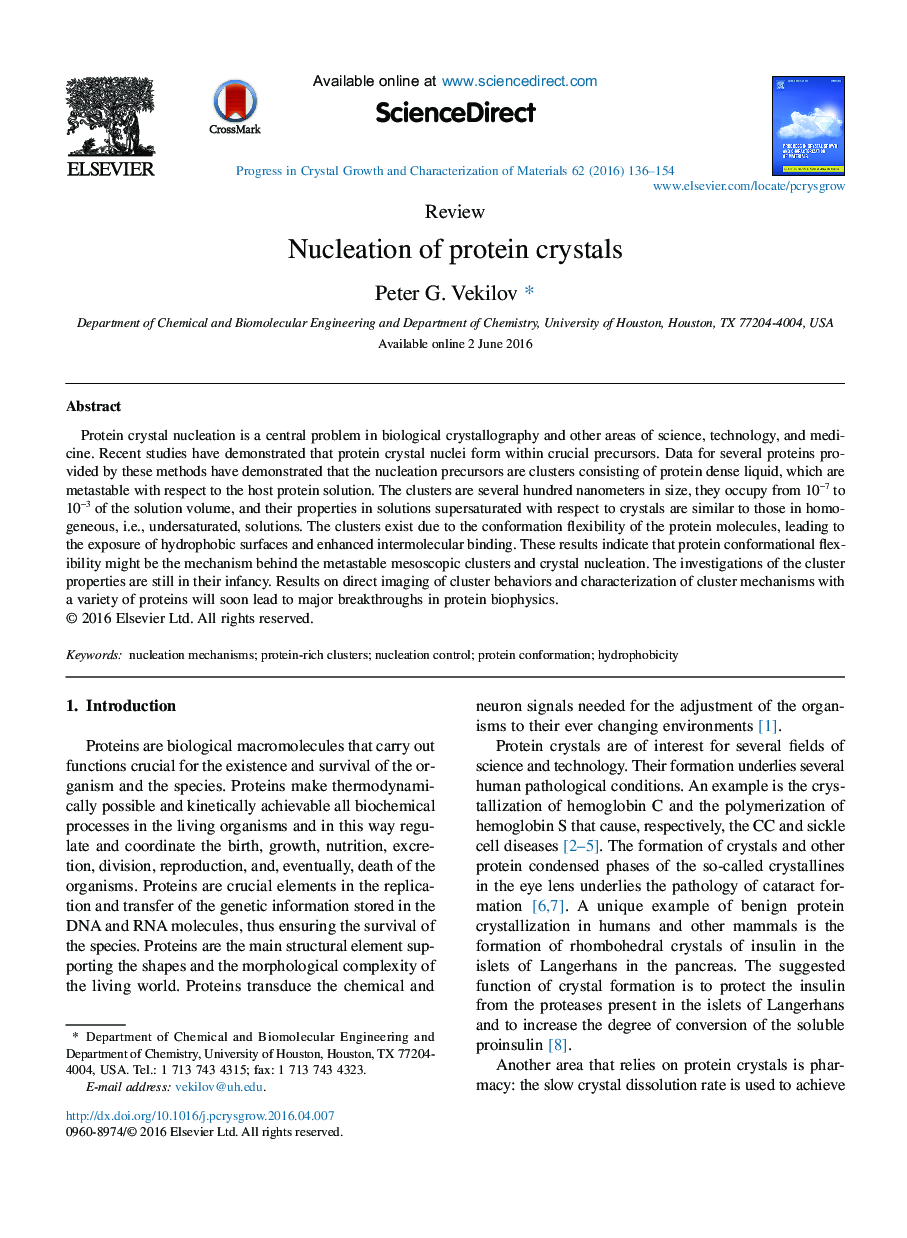| Article ID | Journal | Published Year | Pages | File Type |
|---|---|---|---|---|
| 7987699 | Progress in Crystal Growth and Characterization of Materials | 2016 | 19 Pages |
Abstract
Protein crystal nucleation is a central problem in biological crystallography and other areas of science, technology, and medicine. Recent studies have demonstrated that protein crystal nuclei form within crucial precursors. Data for several proteins provided by these methods have demonstrated that the nucleation precursors are clusters consisting of protein dense liquid, which are metastable with respect to the host protein solution. The clusters are several hundred nanometers in size, they occupy from 10â7 to 10â3 of the solution volume, and their properties in solutions supersaturated with respect to crystals are similar to those in homogeneous, i.e., undersaturated, solutions. The clusters exist due to the conformation flexibility of the protein molecules, leading to the exposure of hydrophobic surfaces and enhanced intermolecular binding. These results indicate that protein conformational flexibility might be the mechanism behind the metastable mesoscopic clusters and crystal nucleation. The investigations of the cluster properties are still in their infancy. Results on direct imaging of cluster behaviors and characterization of cluster mechanisms with a variety of proteins will soon lead to major breakthroughs in protein biophysics.
Related Topics
Physical Sciences and Engineering
Materials Science
Materials Science (General)
Authors
Peter G. Vekilov,
